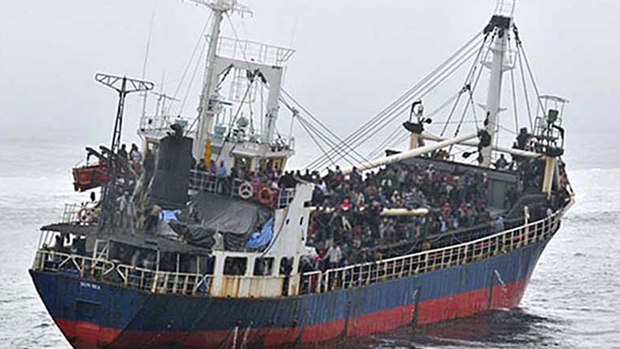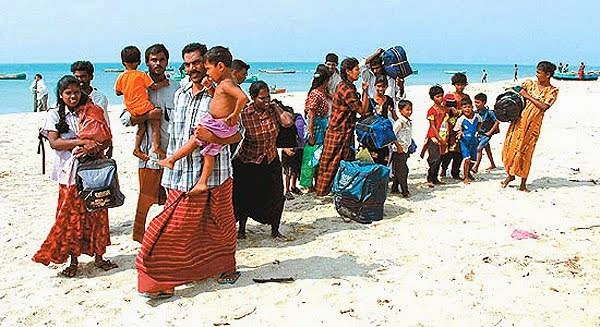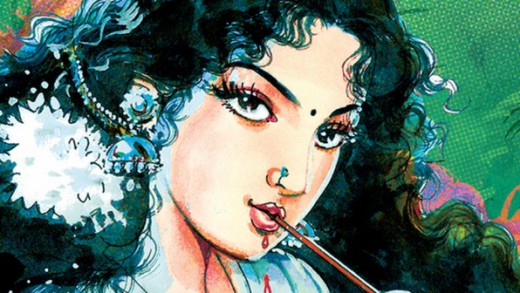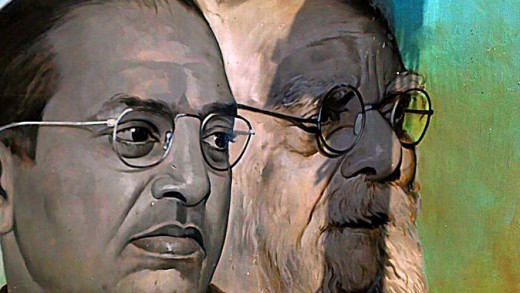About twenty-six years ago on February 20 1989, I got my first real job with an investment firm. I was 19 years old and employee number 24. The lowest man on the totem pole — a mailroom clerk. It paid very little. It wasn’t much even then. Soon, I got my first real promotion as a filing clerk. I was thrilled. But soon realized I was still making the same. Scared and nervous, I meekly asked my boss if I could please get more responsibility so I can make more. To my astonishment I got it. That was a quarter-century and half-dozen promotions ago.
If you believe, as I do, that the urge to provide for the family and generally seek economic upward mobility is part of a person’s psychological makeup, perhaps it is better that we embrace the system that worked better than the one that failed. Capitalism, despite its obvious and sometimes glaring flaws, is the only system that seems to have worked. Tamils in Canada know this very well.
Our arrival in Canada started in earnest after the 1983 anti-Tamil riot in Sri Lanka. The mass exodus accelerated in the last decade of the last century, resulting in largest Sri Lankan Tamil population outside of Sri Lanka. Since then, collectively the lives of Tamils were “rewired”. Prior to this, our world consisted of state aggression, brutality and lack of personal freedom.
We were a whole generation of men, women and helpless children written up in the Sri Lankan racial book of redundancy. Amidst the brutality of a long civil war we made our way to Canada, leaving behind the country of our birth, soaked with the blood of siblings, parents and large extended families. The only collateral we had was a strong back and the hope of a better life.
Nobel laureate Milton Friedman is quite possibly the most brilliant, influential economist of our time and a man who was on the cutting edge of libertarian thought. He was one of the strongest proponents of freedom in society — political and economic — as the only way towards development and peace. In his book “Capitalism and Freedom”, Friedman argued that politics and economics are practically impossible to separate. One cannot have political freedom without economic freedom, and vice-versa.

An environment of freedom, coupled with force of human will, produced a life of prosperity and advancement, resulting in enormous success in many facets of Tamil entrepreneurship, business disciplines, growth in commerce, fields of academic studies and more importantly economic success, making us one of the most successful immigrant groups in Canada. It has been a hard-won battle.
It is often said that all immigrant stories have similarities, but there is a tremendous dividing line between those who left and those who escaped. We fell into the latter category. Our gradual transformation from an unfairly organized, flawed system into a democratic system where one has the freedom to attempt to shape their own life, we gained the opportunity of knowing and choosing between different forms of life. We have worked our own salvation, our survival, in a long series of failures and successes.
It is fashionable these days to slam and denigrate the capitalistic system, as is the case with some of young Tamils in Canada. They seem to embrace and yearn for a very textbook idealistic world which does not exist. For the most part their sentimentality clouds their view. They are remarkably inflexible and shockingly unprepared for real life. What I find even more shocking is their militaristic view of how a society should be organized. And in order to achieve this they seem to embrace communistic type redistribution of wealth. Taxing the rich has become a popular tactic for garden-variety leftists and campaign fodder for some political parties across the country.
They believe legislating the poor into prosperity by legislating the wealthy out of prosperity is a smart idea. To the contrary; if a person receives something without working for it, that means another person must work for it without receiving in order to make that possible. You cannot give to anybody anything without first taking it from somebody else. When a segment of the population gets the idea that they do not have to work because others are going to take care of them, and when the other segment of the population who work get the idea that it does no good to work because somebody else is going to get what they work for, this is the beginning of the end of any society and a nation. You cannot multiply wealth by dividing it.
Most of the faults and flaws of capitalism on which critics dwell are human inflicted. They base their arguments based on media headlines during the “Great Recession” of 2008 and call it “the end of capitalism.” As often, they greatly overstate and misstate by projecting a serious, temporary decline brought on by the housing market in the United States as the “end.” Over the years capitalist systems have weathered many more serious problems than this. I am not suggesting capitalism is a perfect system. But it is the better out of the three: communism, socialism and capitalism.
I have great respect and admiration for the parents of the next generation of Tamil Canadians. They took a monumental risk and crossed many oceans and nations to reach Canada. They embraced the new way of life to make a better future for their kids by working hard — at times by doing multiple jobs. I also have tremendous respect for those young Tamil Canadians who have the entrepreneurial spirit and ingenuity to make a bright future for themselves and future generations instead of blaming the system.

Capitalism is the only system that adapts to all manner of cultural and language differences. As such it will continue to spread. There is no better alternative to capitalism as a social system for providing personal freedom and choice. The system of “freedom and choice” is helping to realize the benefits of Canada, and Tamils will be better off because of it. It is the only system we Tamils have found in which our personal freedom, progress and prosperity coexist. Ernest Hemingway is reputed to have once said that “one cat leads to another.” If he had met Tamils, he would have known just how right he was.
The larger lesson that can be learned from our transition is that freedom to make a living is a good thing, and has been rewarding for both Tamils who migrated to Canada and their kids. The law of hard work and risk taking, in which every person strives to move upward by working toward what the person desires, is the “unseen hand” that allows everyone in the family to prosper.
Like capitalist systems, Tamils are neither rigid nor identical. We differ, change and adapt. Over the next few generations of Tamils, the most important function of our ‘Tamilness’ will be to refine the paradigm between risk taking, that was innate in the earlier generation that arrived in Canada, and the entrepreneurship and know-how of Canadian born Tamils.
Today, I am at the same investment firm. Maybe this is not out of loyalty, but perhaps because no one else was willing to hire me. Kidding aside, during this 26 year period the same firm became Canada’s second largest independent investment firm. Every time I had the chance I would ask for more responsibility and worked to prove that I was worthy of it. That’s how I learned few essential lessons about how the world worked, especially work world. Opportunity is neither abundant nor equal. If you don’t ask and are not willing to take risk, you won’t get anywhere in life.
I recognize that we are all unique with distinctive needs and varying opinions. Whatever our goal in life, prosperity incurs responsibility, and we need to make sure that our path to prosperity is not a circular one.
-Roy Ratnavel
Related articles:
The Tamil Millionaire Next Door
Are You Tamil and Privileged?
2 Tamil Perspectives From Toronto Life’s #TorontoIsFailingMe

 Guest Contributor
Guest Contributor









